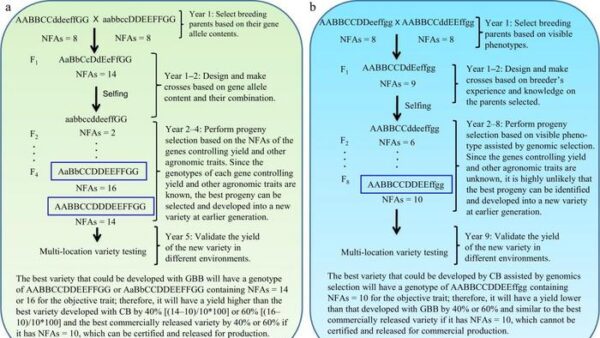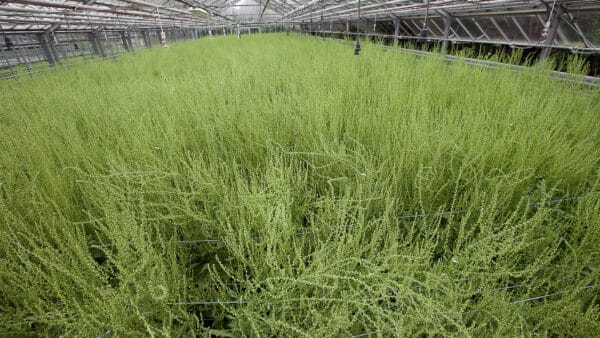Independents’ crusade for fairness in agriculture
In an industry where giants loom large, the independent seed sector is at a crossroads of competition and innovation. Todd Martin, CEO of the Independent Professional Seed Association (IPSA), sheds light on the intricate challenges and potential pathways forward.
“We’re at a point where the independent seed industry is under a lot of pressure in the competition arena,” Martin explains. “We’ve got some very large, multinational corporations that are competing in the same area, but they’re acting as vendors or suppliers to independent seed companies through licensing of biotechnology traits and underlying crop technologies.”
He says the past three decades have been good for innovation in agriculture since the introduction of biotechnology. However, he explains that “as of late, there’s been an enormous amount of pressure against these small seed companies.”
“My concern is that the playing field becomes more level,” he said. “We’ve got to be able to see that small companies can compete in an area where they also have a supplier relationship.”
Martin says this multifaceted competition is not just about market share but also about the survival and independence of smaller entities in the field.
On the financial front, Martin highlights a concerning trend where “Farmers and independent companies are paying a significant portion of their revenue in royalties, with about 52% of the value of a bag of seed going to intellectual property royalties.”
“Seed companies have about 7% of the value of that bag of seed that they can count as profit,” Martin says. “It’s a very tight market for an independent seed company. Not only are they paying biotechnology fees and licensing, they are paying genetic fees and licensing, they are paying for seed treatments … conditioning … production for that crop and they also pay for their own marketing expenses. So what we are seeing is royalty fees going up while prices are being held pretty flat, which is just squeezing that margin even more.”
He says this disproportionate financial burden is squeezing the margins of these smaller entities to a breaking point.
“I believe we’ve got enough companies under pressure, we could see a loss of companies in the marketplace,” he says. “That is the loss of economic contributors in rural communities that will not be replaced — that’s jobs, families and real value for companies that have been in rural areas for generations.”
Delving into the issue of patents, Martin criticizes the current system.
“In the United States, we’ve always valued innovation,” he says. “Our patent law structure is set up to reward innovation and it should be rewarded. Small changes in a product should not be included in innovation and should not extend patents.”
Martin says this practice hinders competition and keeps prices high and it is not conducive to fostering broad-based innovation.
“It’s time for some changes in the way that patents and innovation are looked at,” he says. “If patents were allowed to expire naturally, it would lead to a surge in innovation, benefiting both seed companies and farmers.”
Martin says he envisions a scenario where the expiration of patents paves the way for more affordable, generic options and opportunities for independent seed companies.
“The number one opportunity is an economic strengthening for seed companies and farmers,” he adds. “Their cost of production immediately drops. To have that open up allows companies to build innovations on top of other innovations rather than having one company having a patent locked up and building on top of their own patented technology.”
Martin explains that independent seed companies have had a role in innovation for decades.
“Hybridization of corn came about because of a few brilliant plant breeders 90 years ago,” he says. “Independent seed companies drove that.”
Martin expresses frustration about the Environmental Protection Agency (EPA) and its role in the seed industry.
“I’d love to say that I had confidence in the EPA to actually protect the environment, but I don’t believe they do any longer,” he says. “I think they have a group of bureaucrats in there that have been in place for over 30 years that absolutely stifle innovation.”
Martin argues that the EPA appears to favor large corporations over smaller stakeholders and he calls for a more inclusive and transparent regulatory process.
Martin is unwavering in his commitment to ensuring a fair playing field.
The Agricultural Stewardship Biotechnology Committee has four members,” Martin says referring to the “Big Four.” “It’s bad for the industry.
Martin calls for a restructuring of the committee to include IPSA, American Seed Trade Association, National Cotton Council and the National Corn Growers Association.
“If they were to do that then all of a sudden, every seed company that buys biotechnology product and licenses it, every farmer who grows a crop regulated by EPA (corn and cotton) would have a seat at the table.
He asks for a redesign of the system to include all stakeholders.
“Transparency is a good thing,” he asserts. “I want to see more transparency. What’s going on today is wrong. It’s about the seed companies and the farmers having a voice. That would be a great victory for agriculture.”











